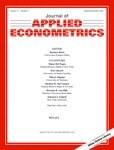
Donkers, B., Paap, R., Jonker, J. and Franses, \.H. (2006). Deriving Target Selection Rules from Endogenously Selected Samples Journal of Applied Econometrics, 21(5):549--562.
-
Affiliated authors
-
Publication year2006
-
JournalJournal of Applied Econometrics
The selection of the most profitable customers in a customer database for targeted activities is often done based on observed behaviour in the past. Consequently, databases arising from the responses to, for example, direct mailings in the past are not random samples. When not all heterogeneity across customers is observed, target selection will be based on unobserved heterogeneity and hence it is endogenous. We develop a method to adjust the likelihood function of latent class models to correct for this endogenous sampling process. We apply this technique to the selection of mail targets for a Dutch charity. Based on a joint model for the response rate and the amount donated, we create a target selection rule that maximizes expected revenues.